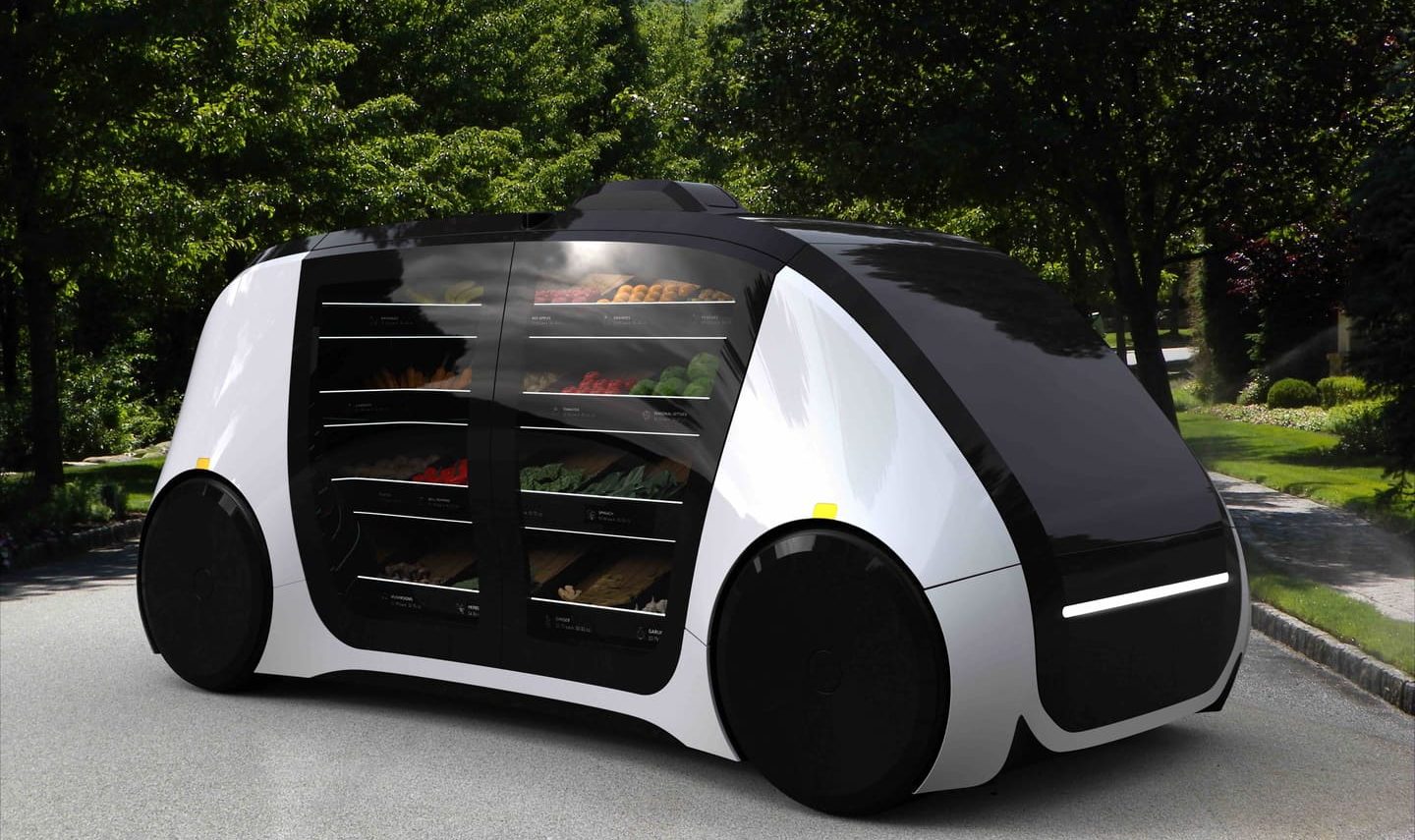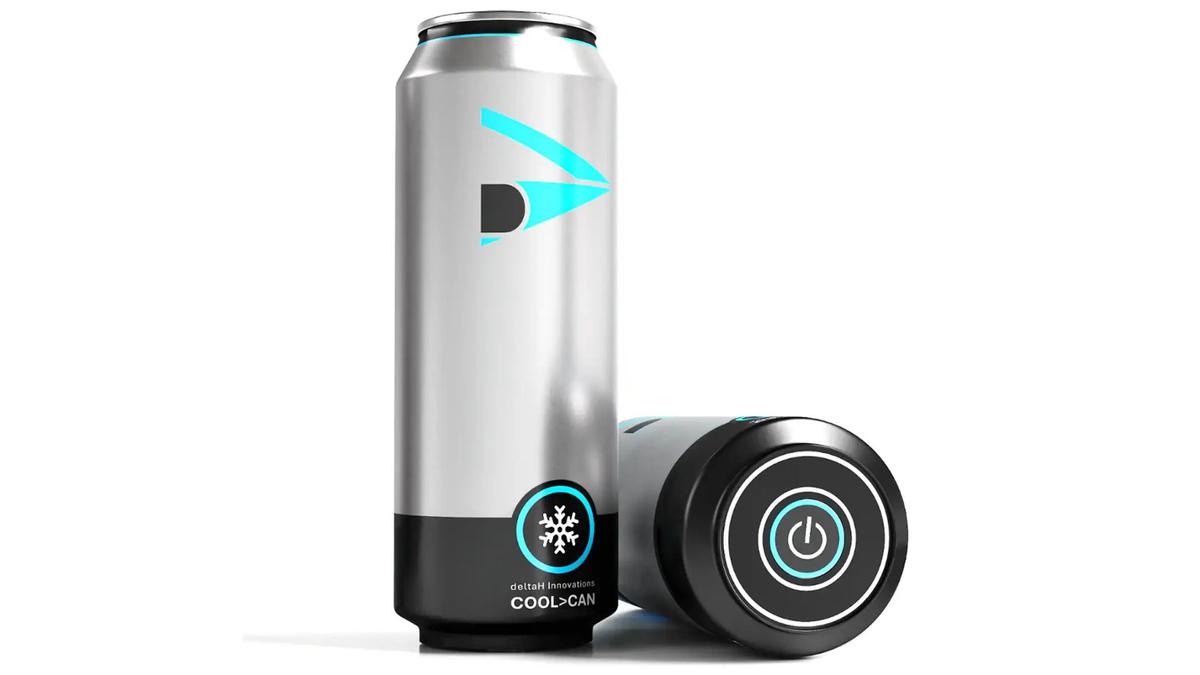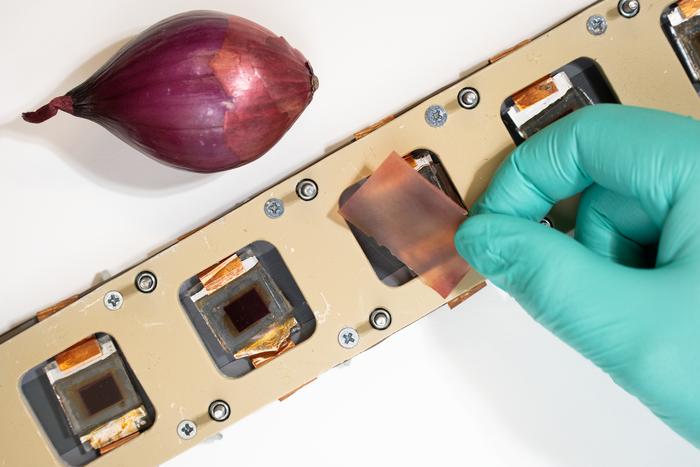This Self-Driving Grocery Store Is More Realistic For Americans Than Amazon

The hype may be huge for Amazon Go right now, but those not paying attention might miss the more practical futuristic model rolling by it. The company behind the new tech, Robomart, can definitely do more for the American people than the “store of the future.”

Photo courtesy of Robomart
Robomart’s concept seems simplistic on paper: tap on an app’s button to summon the driverless mobile grocer, who shows up with an air-conditioned selection of produce you can choose from. You’re automatically charged for what you pick out of the Robomart, and it heads off to its next customer or back to the store to recharge.
The mobile produce shelves are meant to work within the current system rather than outside of it. Major or minor retailers alike can license the vehicles from Robomart and expand their customer reach.
What this model does is allow Robomart to standout from Amazon Go as a futuristic store in several ways. It can be used to combat food deserts in this country, has less challenges to face for a national rollout, provides a level of convenience Amazon has yet to reach, and ultimately, gives supermarkets a major upgrade in the fight against the Amazon-Whole Foods empire.

Photo courtesy of Robomart
While the vehicle may be slow — topping out at 25 mph — its 80-mile range more than makes up for it. Virtually any home within a 40-mile radius of a grocery store will have a more convenient and accessible produce shopping option. This makes Robomart an ideal solution for food deserts, especially in rural areas. The distance to a supermarket in these regions can be 10-20 miles, according to the CDC. For those who can’t drive there for one reason or another, having the store come to them is an optimal solution to help them acquire produce, one of the biggest needs for those in food deserts.
Getting out to these areas, unfortunately, is one of the major challenges the startup faces. Autonomous driving barely exists outside of Northern California, an area just starting to determine the necessary laws to ensure road safety. There’s no telling how long it will take for self-driving cars and the surrounding legislation to spread nationwide.
However, there’s a good chance that it’ll move quicker than Amazon Go’s expansion. The high-tech store has to worry about finding real estate and expanding their distribution network to accommodate for new locations. On the other hand, Robomart only needs one factory to manufacture its cars that fit into a store’s already existent system.

Photo courtesy of Robomart
Amazon itself also can’t beat Robomart when it comes to convenience. Amazon can get product delivered in 2 hours at its fastest, and that comes with a minimum purchase amount. (It’s unknown at this time whether Robomart will have a minimum purchase amount for its service as well). There’s always Amazon Fresh for groceries, but that comes with an annual fee and the dry ice isn’t as environmentally friendly as an electric car. Robomart can overtake Amazon here if it chooses to not charge customers a fee for its service and have the stores pick it up instead.
Would stores choose to take on the costs of delivery to its at-home customers? They would be wise to do so, as Robomart gives them a novel way to stand up to the spread of Amazon and Whole Foods. Conventional stores can rely on these vehicles to match or even surpass the corporate conglomerate in delivery speed and accessibility.
While all of Robomart’s advantages may sound amazing, it will only have these if the startup can leverage its model to its maximum potential. They need to be able to sell more than just produce in the future. They could, for example, give people the choice to add other goods to their order on top of the typical produce shelf. Consumers also shouldn’t be paying any fees to utilize this service, as stores should pick it up to gain the clients they need to stay competitive to Amazon. Furthermore, Robomart will need legislation and approval of self-driving cars to grow fast if they want to spread nationwide. Given the controversy surrounding this new technology, it may take a while for that to happen.
If all of that (and a little bit of luck) can happen, though, Robomart will definitely stand out in the coming years as the more realistic high-tech grocery store option.






















